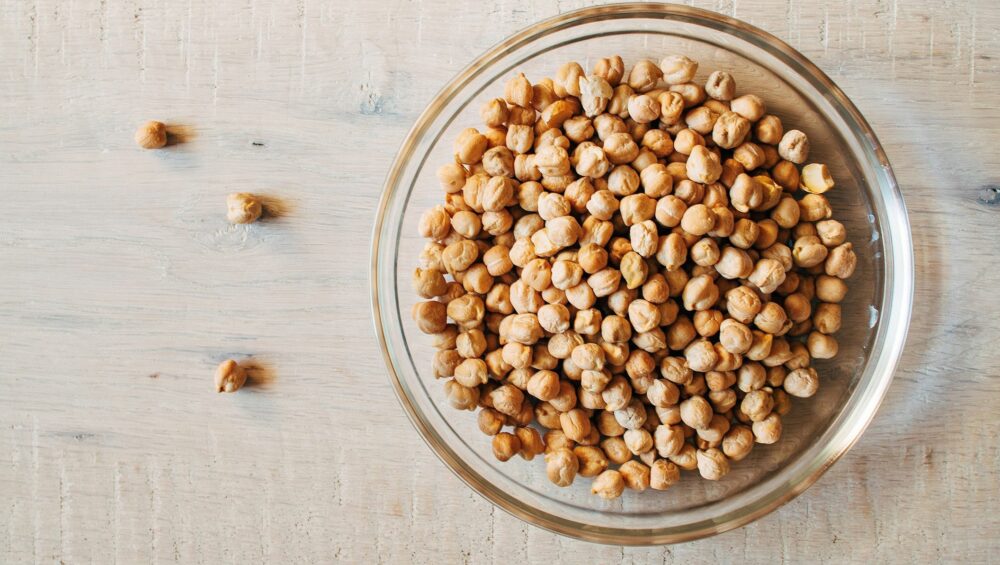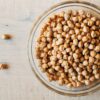Chickpeas, also known as garbanzo beans, have been grown and eaten in Middle Eastern countries for thousands of years. Their nutty taste and grainy texture pair well with many other foods and ingredients. As a rich source of vitamins, minerals, and fiber, chickpeas may offer a variety of health benefits, such as aiding weight management, improving digestion, and reducing your risk of disease.
Additionally, this legume is high in protein and makes an excellent replacement for meat in many vegetarian and vegan dishes.
1. Packed with nutrients
Chickpeas boast an impressive nutritional profile. They contain a moderate number of calories, providing 269 per cup (164 grams). Approximately 67% of these calories come from carbs, while the rest comes from protein and fat.
2. Rich in plant protein
Chickpeas are a great source of plant-based protein, making them an excellent food for people who don’t eat meat or animal products. The protein in chickpeas may help promote fullness and keep your appetite under control. Protein is also known for its role in weight management, bone health, and muscle strength.
4. May help you manage your weight
The protein and fiber in chickpeas may reduce your appetite, which may then lower your calorie intake at meals. In one study, those who ate chickpeas regularly were 53% less likely to have a body mass index (BMI) over 30 and more likely to have a lower waist circumference than those who didn’t eat chickpeas
5. May benefit digestion
Chickpeas are full of fiber, which offers several benefits for digestive health. The fiber in chickpeas is mostly soluble, meaning that it blends with water to form a gel-like substance in your digestive tract.Soluble fiber may help increase the number of healthy bacteria in your gut and prevent the overgrowth of unhealthy bacteria. This may lead to reduced risk of some digestive conditions, such as irritable bowel syndrome (IBS) and colon cancer





